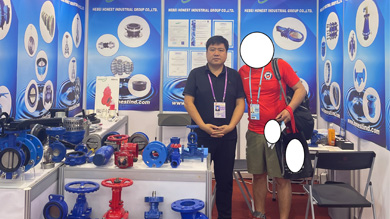11 月 . 04, 2024 17:23 Back to list
Water Ball Valve Functionalities and Advantages in Fluid Control Systems
Understanding Water Ball Valves Key Features and Applications
Water ball valves are essential components in various plumbing systems and industrial processes, providing effective control over the flow of water and other fluids. These valves, known for their durability and reliability, play a pivotal role in a wide range of applications, from residential plumbing to large-scale industrial operations.
What is a Water Ball Valve?
A water ball valve is a type of quarter-turn valve that uses a spherical disc (the ball) to regulate the flow of water. The ball has a hole or port that allows water to pass through when the valve is open. When the valve is closed, the ball rotates to a position that blocks the flow. This simple yet effective design enables quick and efficient opening and closing operations, often requiring only a 90-degree turn of the handle.
Key Features
1. Durability Water ball valves are constructed from various materials, including brass, stainless steel, and PVC, which contribute to their longevity and resistance to corrosion, sediment, and wear.
2. Flow Control The design of the ball valve allows for excellent flow control. The full bore design minimizes pressure loss, providing a clear flow pathway and permitting high flow rates when open.
3. Ease of Operation With their quarter-turn operation, ball valves are user-friendly and require minimal effort to operate. This feature makes them suitable for manual or automated systems.
4. Versatility Water ball valves can be utilized in various applications, including residential plumbing, irrigation systems, and industrial processes, making them a versatile choice for fluid control.
water ball valve

5. Leak-Free Performance When properly installed and maintained, ball valves are capable of creating a tight seal, preventing leaks and ensuring reliable performance.
Applications
Water ball valves find extensive use across multiple sectors. Here are some of the key applications
1. Residential Plumbing These valves are commonly found in homes for controlling water flow to various fixtures such as sinks, toilets, and showers. Their reliability and ease of use make them an ideal choice for homeowners.
2. Irrigation Systems In agricultural settings, ball valves are used in irrigation systems to manage water distribution efficiently. Their ability to handle high flow rates and resist wear ensures optimal operation in demanding environments.
3. Industrial Applications In factories and manufacturing facilities, water ball valves are essential for controlling the flow of water in cooling systems, chemical processing, and other operational processes. Their durability is particularly advantageous in industrial settings where valves are subjected to rigorous use.
4. HVAC Systems Ball valves are utilized in heating, ventilation, and air conditioning (HVAC) systems. They help regulate water flow in heating systems and control the flow of refrigerants, contributing to energy efficiency and optimal system performance.
Conclusion
Water ball valves are a crucial component in many fluid control applications, thanks to their design, durability, and versatility. Understanding their features and applications helps users make informed decisions about their plumbing and industrial needs. Whether for residential use or in complex industrial systems, ball valves provide reliable performance and effective flow control, ensuring that water management is efficient and effective. By selecting the right type of ball valve for specific applications, users can enhance their overall system performance, reduce maintenance costs, and ensure a long-lasting solution for fluid regulation.
Share
-
Understanding the Differences Between Wafer Type Butterfly Valve and Lugged Butterfly ValveNewsOct.25,2024
-
The Efficiency of Wafer Type Butterfly Valve and Lugged Butterfly ValveNewsOct.25,2024
-
The Ultimate Guide to Industrial Swing Check Valve: Performance, Installation, and MaintenanceNewsOct.25,2024
-
Superior Performance with Industrial Swing Check Valve: The Essential Valve for Any SystemNewsOct.25,2024
-
Industrial Swing Check Valve: The Ideal Solution for Flow ControlNewsOct.25,2024
-
You Need to Know About Industrial Swing Check Valve: Functionality, Scope, and PerformanceNewsOct.25,2024